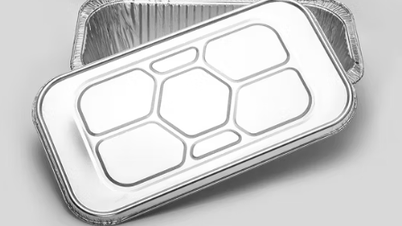Risks of high intensity exercise
Master, Specialist Doctor II Huynh Thanh Kieu, Head of Department of Cardiology 1, Cardiovascular Center, Tam Anh General Hospital , Ho Chi Minh City said that a sedentary lifestyle increases the risk of heart disease by 50%. Regular exercise helps reduce risk factors for stroke and myocardial infarction, including diabetes, dyslipidemia, hypertension, obesity, etc.
In addition, regular exercise also increases good cholesterol (HDL-C), contributes to improving coronary artery endothelial function, and limits atherosclerosis. The American Heart Association recommends that each person should spend 150 minutes of moderate-intensity exercise, such as brisk walking, cycling, swimming, etc., or 75 minutes of vigorous exercise such as jogging, weight lifting, tennis, etc. each week.
However, many people are too impatient to lose weight, want to quickly have a toned body or prepare to participate in a sports tournament, so they rush into high-intensity training without advice or guidance from experts. This can cause cardiovascular events including heart attack, arrhythmia, sudden death.
Research shows that sports-related deaths are mainly due to coronary heart disease in adults and cardiomyopathy or arrhythmia in adolescents. Other heart conditions, such as myocarditis, valvular heart disease, congenital heart disease, and pulmonary hypertension, can also contribute to exercise-related deaths.
A 20-year-old male patient was brought to Tam Anh Hospital in a state of shortness of breath, fatigue, and dizziness. He had spent most of his time in the gym for the past three days because he was about to participate in a weightlifting competition in the district. This afternoon, he increased the intensity of his workout, and after 30 minutes, he suddenly fainted.
After examination, the doctor diagnosed him with hereditary hypertrophic cardiomyopathy. Excessive exercise caused an irregular heartbeat, and the heart's electrical system lost control. Fortunately, he received proper first aid and arrived at the hospital in time, so no dangerous complications occurred. Before being discharged, he was advised on appropriate exercise for his physical condition, and instructed to return for follow-up examinations and follow-up to detect abnormalities early.
Associate Professor, Dr. Pham Nguyen Vinh, Director of the Cardiovascular Center, Tam Anh General Hospital, Ho Chi Minh City, said that when exercising at high intensity, the heart beats faster and pumps blood more strongly, requiring more oxygen than normal. In people with coronary artery disease due to atherosclerosis, stress (pressure) on the vascular wall can cause atherosclerotic plaque to peel off. Atherosclerotic plaque floats in the lumen of the blood vessels, if it stops in the heart or brain, it will block these blood vessels, causing stroke and myocardial infarction.
For people with underlying heart disease (previously undetected cardiovascular disease), overexertion will affect the heart muscle, activating the heart's electrical system at the wrong time and causing sudden cardiac arrest, leading to death on the gym floor.
Additionally, many gym-goers use steroids and performance-enhancing drugs to promote muscle gain. These substances often have side effects on the heart, including high blood pressure, high cholesterol, and enlarged heart muscle, all of which increase the risk of heart attack.
“If heart disease is well controlled and exercised properly, the risk of cardiovascular complications is very low, only 0.31-2.1 times/100,000 people per year,” Associate Professor Vinh affirmed, adding that in people who exercise regularly, this risk is even lower than in people who are sedentary.
Exercise Safety
Dr. Kieu recommends that to ensure safety when exercising, it is necessary to pay attention to performing a basic cardiovascular test, especially for people over 40 years old and those with a history of heart disease. The basic cardiovascular test package includes an ECG (reading the electrical activity in the heart at rest, helping to diagnose abnormalities in the structure and rhythm of the heart), a stress test (monitoring the heart's response when the body is under physical exertion), an echocardiogram (to assess blood flow, structure and function of the heart), and a family history check (to see if anyone has died from heart disease or had a heart attack).
Doctor Kieu examines and advises patients on appropriate lifestyle and exercise regimen. |
Everyone should consult a doctor about appropriate exercise. If you have a history of heart disease, myocardial infarction or chronic diseases such as musculoskeletal, kidney failure, diabetes, etc., ask your doctor what form and intensity of exercise is suitable for you. When exercising, remember to take 1-2 days off per week to give your body time to recover. Avoid overtraining as it can cause exhaustion, injury and poor performance.
Before exercising, it is important to warm up properly. This helps the body to be warmed up, the muscles are well prepared for the main exercise session, and at the same time promotes the circulatory system to pump oxygen-rich blood throughout the body. After exercising, you should spend 10-15 minutes doing yoga or stretching to speed up recovery and mobility. These exercises help increase range of motion, avoid muscle stiffness and reduce injury.
People should not exercise when they are too hungry or too full. Exercising when hungry can easily cause hypoglycemia, while being too full can cause blood to concentrate on the digestive system. The increased volume of the stomach compresses the diaphragm, limiting the supply of enough oxygen to the heart and brain, leading to fainting.
In addition, you need to listen to your body during exercise. If you experience any unusual symptoms such as chest pain, shortness of breath, dizziness, sweating, etc. while exercising, stop immediately. If the symptoms do not improve after resting for 15-30 minutes, you should go to the hospital for a check-up.
Carrying a blood pressure monitor, heart rate monitor, automated external defibrillator (AED), nitrate tablets, etc. not only helps the practitioner monitor cardiovascular health throughout the exercise but also increases the chance of survival if an unfortunate incident occurs.
Along with exercise, each person needs to build a healthy diet, not smoke, limit alcohol, get enough sleep, stay away from stress... to improve overall health. A healthy body does not only come from exercise but is achieved through a combination of many factors.
HOANG LAM
Source: https://nhandan.vn/lam-gi-de-tranh-dot-tu-khi-tap-gym-qua-suc-post854299.html





































































































Comment (0)